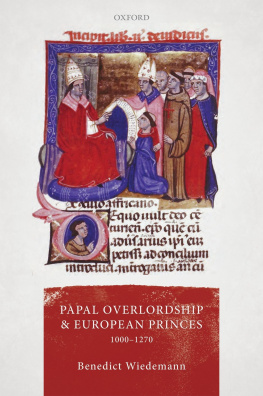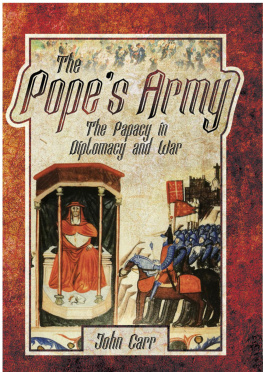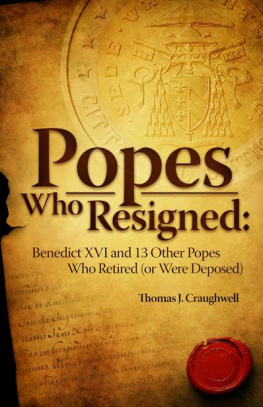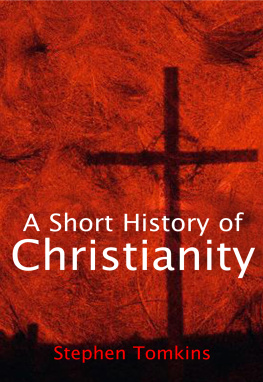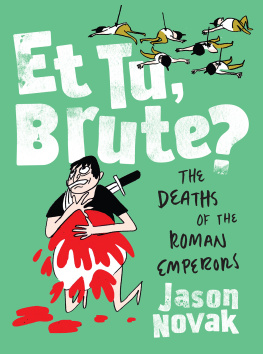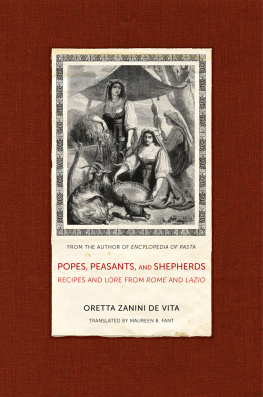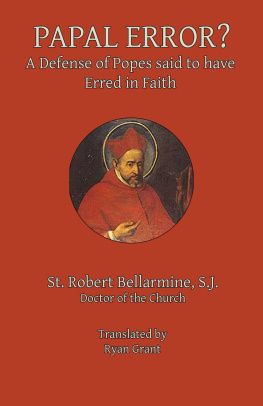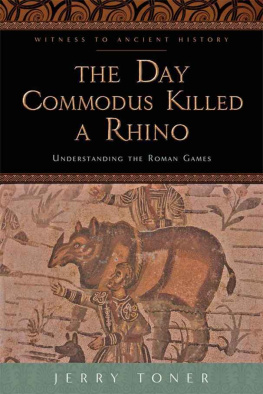BEGINNINGS OF ALEXANDER VI 14921494

POPE ALEXANDER VI
OnAugust 6, 1492, the twenty-three Cardinals in Rome entered the Conclave. Thedeath of Innocent VIII had been long foreseen, and the probabilities of thefuture election had been discussed. Innocents nephew, Lorenzo Cibo, wasanxious for the election of someone bound to his house by ties of gratitude.His candidate was the Genoese Cardinal Pallavicini; but Cardinal Cibo sharedthe incompetence of his family, and when he saw that his first proposal wasunacceptable he had no one else to propose. Charles VIII of France was anxiousto secure the election of Cardinal Rovere, and sent 200,000 ducats to a Romanbank as a means of furthering his desire. A Pope in the French interest wasdreaded by Milan; and Cardinal Ascanio Sforza was resolutely opposed to Rovere.Sforza did not judge it wise to put himself forward as a candidate; he ratherwished to have a Pope who would owe everything to him, and he joined withRaffaelle Riario in pressing the election of Cardinal Borgia. There were manyreasons why Borgia should be acceptable. As a Spaniard he would hold a neutralposition towards political parties in Italy, and the recent successes of theSpanish monarchs had turned men's eyes to Spain as a power which was rising toimportance in the affairs of Christendom. Moreover Borgia was the richestCardinal in Rome; his election would vacate many important offices, for whichthere were eager candidates. The former objections to his personal characterdisappeared in the low tone of morality which was now almost universal.
Thefirst days of the Conclave were spent in the futile proceeding of makingregulations to bind the future Pope. Ascanio Sforza, seconded by Orsini, wasworking hard to secure the election of Borgia, who debased himself to make themost humble entreaties. Borgias wealth was a useful argument to confirm theminds of waverers; Ascanio Sforzas zeal was increased by the promise of theoffice of Vice-Chancellor and Borgias palace; Orsini, Colonna, Savelli,Sanseverino, Riario, Pallavicini, even the nonagenarian Gherardo of Venice, allreceived promises of benefices or gifts of money. So matters proceeded smoothlyin the Conclave, and late in the evening of August 10 the election of RodrigoBorgia was unanimously accomplished.
Weare told that the first utterance of the newly-elected Pope was a cry of joy,I am Pope and Vicar of Christ. Cardinal Sforza said that the election was thework of God, and that great things were expected of the new Pope for the goodof the Church. Borgia replied that he felt his own weakness, but trusted toGods Holy Spirit. He showed great haste in clothing himself with thepontifical vestments, and ordered the Master of the Ceremonies to write thefact of his election on pieces of paper and throw them out of the window. Itwas late in the evening when the election was made, and not till the early dawndid the crowd assemble outside the Vatican and hear the customary proclamationfrom the window; then the bells rung and Rome was filled with rejoicing. WhenBorgia was asked what name he would take, and Calixtus was suggested inremembrance of his uncle, he answered, We desire the name of the invincibleAlexander. Cardinal Medici, alarmed at the demeanor of the new Pope, whisperedin the ear of Cardinal Cibo, We are in the jaws of a rapacious wolf; if we donot flee he will devour us. Alexander VI was enthroned in S. Peters, whereCardinal Sanseverino, a man of huge stature, lifted the new Pope in his armsand placed him on the high altar.
RodrigoBorgia was born at Xativa, in the diocese of Valencia, on January 1, 1431. Hisparents, Jofre and Isabella Borgia, were cousins, and belonged to a familywhich may have had far-off claims to nobility, but was poor and of smallaccount. The young Rodrigo was early destined to a clerical career, in whichhis uncle Alfonso, Bishop of Valencia, could help him to preferment. Theelevation of Alfonso Borgia to the pontificate brought Rodrigo a Cardinalate atthe age of twenty-five, and soon afterwards the lucrative office ofVice-Chancellor. At the time of his election to the Papacy, he had hadthirty-six years' experience of the Curia, and had served under five Popes. Hewent with Pius II to the Congress of Mantua, and had been the legate of SixtusIV to Spain in the first fervor of his crusading zeal. He had seen the oldideals of the Papacy die away, and had gracefully accommodated himself tochanges as they came. He was always influential but never powerful, andcultivated useful friends. He was capable in business and used hisopportunities to amass money, so that no Cardinal, except Estouteville, everestablished so great a reputation for wealth.
Ongreat occasions he displayed a becoming magnificence, as at the festival ofPius II at Viterbo, and the celebration in Rome of the fall of Grenada; but hewas not given to prodigality or luxury. He lived with careful economy, and whenhe was Pope preferred to make his meal of one dish only, so that lovers of goodfare found it an infliction to dine with him. He built himself a splendidpalace near the river; but in so doing he only followed the fashion of histime. He was kindly, and showed active benevolence to those who were in want.But the most striking thing about him was his fascinating appearance andattractive manners. He is handsome, says a contemporary, with a pleasantlook, and honeyed tongue; he attracts ladies to love him, and draws them to himin a wondrous way more than a magnet draws iron.
CardinalBorgias fascinations for women were not always kept in check by rigorousself-restraint. When he was at Siena in 1460, Pius II reproved him for unseemlygallantry. Cardinal Ammannati at a later date wrote and exhorted him to achange of life. Indeed, there were evidences enough that Cardinal Borgia wasnot true to his priestly vow of chastity. He had a daughter Girolama who wasold enough to be married in 1482. A son, Pedro Luis, lived in Spain, andCardinal Borgia used some of his wealth to buy for him the duchy of Gandia; hedied, however, in 1488, before his father's accession to the Papacy. Besidesthese children, whose mother we do not know, Cardinal Borgia had four others,Giovanni, Cesare, Lucrezia, and Jofre, whose mother's name was Vanozza deiCatanei, a Roman. The testimonies that we have of Vanozza speak of her as anexcellent woman, and the inscription on her tomb calls her upright, pious andcharitable. Her youngest son Jofre was born in 1480 or 1481; and eitherimmediately before or after his birth she was married to a scribe, Giorgiodella Croce, and after his death in 1485, she married a second husband, CarloCanale, a secretary of the Penitentiary. Vanozza lived a quiet and secludedlife; we never hear of her presence at the Vatican, or of any recognition shownher by the Pope. She sighs a letter to her daughter Lucrezia La Felice etInfelice Madre Vanozza Borgia. The happy and unhappy motherthat was thesummary of her chequered life. She was happy in her children, their worldly success,their splendid opportunities; she was unhappy because there was a bar betweenthem and her, and she could only witness their triumphs from a distance. Shelived to the age of seventy-six, and died respected in 1518.



